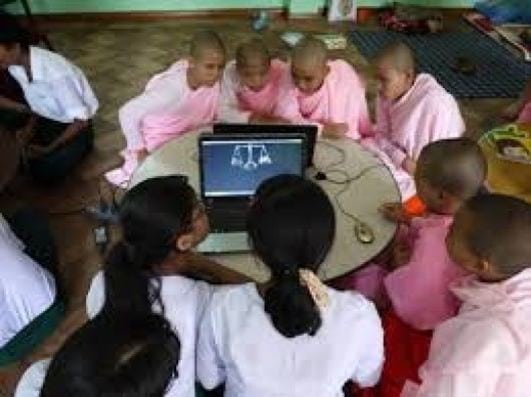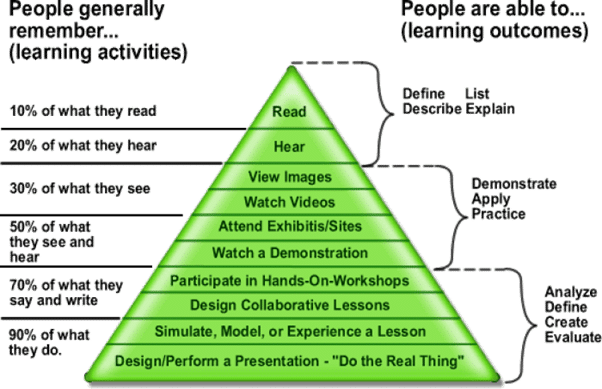
Have you heard of the Khan Academy? In 2004, Salman Khan began tutoring his younger cousin, Nadia, in maths over the Internet, then other cousins. Such was the interest from YouTube watchers, he quit his job as a hedge fund analyst to start the not-for-profit Khan Academy full time.
Salman “Sal” Khan, aged 46, son of immigrants from Bangladesh, founded the Khan Academy, a free online YouTube education platform, in 2009. His 6,500 YouTube, multi-subject videos have been viewed 1.8 Billion times. In 190 countries and 30 languages. 150 million views per month. Khan, an MIT graduate, is charismatic, funny and smart.
The Khan Academy has now introduced AI so that each student has a personal assistant. He says this doesn’t displace teachers but lessens their workload from administration to more efficient teaching.
Sal Khan Explains It
Khan explains his work, and why his use of AI in the Khan Academy can improve education:
There are other talks by Khan, e.g.: Let’s teach for mastery — not test scores | Sal Khan
He also wrote the book, The One World Schoolhouse: Education Reimagined.
How Does It Work?
The Academy is an aid for school teachers, not a substitute, although it can be for those without a school. Khan says it helps kids catch up.
In a one size fits all classroom, the teacher has to proceed with lessons to meet a curriculum timetable, irrespective of whether all kids are ready to move on. If some don’t understand any part, they switch off. Some fall behind, become frustrated and rebellious. But by allowing them to watch entertaining instructional videos, again and again, with no school room pressure or embarrassment, they get up to speed. They can then join in and keep up.
We have all seen kids struggle in our school days, and it was hard on them, especially if there was no help from home. We had textbooks, but motivation and encouragement were needed. If the Khan Academy is specified as homework, it frees up teachers to spend more time on individual needs. Watching videos is cheaper long-term than buying textbooks each year.
Kahn realised this when teaching his cousin Nadia. She was bright but afraid of failing maths. With his video coaching, she became top of her maths class. Obviously, it may require guidance from parents and teachers to get the kids to watch.
He says the present system leaves some kids only half taught (50% pass), even those with 90% don’t know 10%, etc.
Balancing Kids’ Time
We know kids have to be monitored and restricted in screen time and one very important aspect is to get them outside to play. Balance is the key. Sport is important. It is exercise, which improves learning ability and fun combined. Most kids don’t need motivation.
But some self-motivated kids, particularly in Africa and other poor countries, isolated from any school, have been able to pass their University Entrance equivalent. Some have then graduated from university. Starlink plus several other upcoming satellite internet providers will help further, as they are built for remote, unserviced areas.

Sal Khan Recognized
Khan has been recognized with many awards, including:
- The American Academy of Achievement’s Gold Medal
- Annual Heinz Award in the Human Condition category
- Sal Khan, was listed among TIME’s 100 Most Influential People for 2012
- In 2016, Khan Academy won a Shorty Award for Best in Education
- Stanford University was inspired to start Coursera, one of the first free online learning platforms.
Inverting the Education Pyramid

Khan says we should invert the education pyramid and the diagram above says it all. More practice, less time on only-theory.
Many schools now have students participating in group projects, often the kids choosing their own projects. Many of us remember being thrown into a situation where some technical problem had to be fixed with time constraints. Maybe we stayed up half the night, but it got fixed and did we learn!? There is no better way.
Education Is Essential for a Rapidly Changing World
- The Digital world will force change, replace repetitive, boring jobs, but planning for and providing prior education will help re-employ those displaced. This needs to happen quickly.
- Education makes lives more interesting and expands interests, reduces crime, wars etc.
- Figures show it will help reduce and eventually plateau a concerning world population increase.
Let’s Have a Conversation:
What resources do your grandchildren use to supplement their studies? Have you heard of the Khan academy? What other resources have you heard about?





